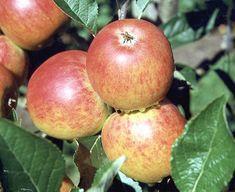
After cementing its position as an importer of apples for the UK retailers, OrchardWorld has responded to customer demand by creating itself a UK platform in the last two years.
With this is in place, it can justifiably label itself a global player. “This season’s UK apples look good and sizes are large,” says OrchardWorld’s managing director, Mark Culley. “It appears there will be a size imbalance with a shortage of small fruit. This shortage is across Europe suffering from a lack of small sizes. Ideally you would like a balance across the sizes.”
The UK crop has also produced larger sized fruit than seen in the last few years, though the quality appears to be good. Culley says that volume levels for Cox are slightly down, but not disappointing. Bramley volumes are up on last year, and Gala levels down but overall volumes may remain similar to last year as increases in other varieties compensate.
In recent years, OrchardWorld has been involved in sourcing worldwide organic supply of top fruit for exclusive supply to Sainsbury’s, dealing with dedicated, certified organic growers. The company’s major sources for organic supply are from the UK, US, Chile and Germany.
The UK is a relatively new hunting ground, but the company has built a good Chinese business over the last four years, that continues to develop and volumes imported have doubled this season - 160 containers of Fuji apples have been received. “Volumes have doubled to match the increase in orders we have received as customer demand increases. Last year the Fuji season ran for seven months but this year we hope to extend it to 9-10 months,” says Culley.
The apple growing area in China is in the Shaanxi Province near to Xian city. Culley explains that the Chinese operations and facilities are excellent, with modern packhouse and controlled atmosphere chambers. “China is a massive opportunity - the soil and climate are so different to Europe and fertile - anything can be grown,” he says.
Always geared up for new opportunities, Culley says that the new EU economies may provide potential in apples and that some Polish growers have shown real interest in the UK apple market. “Polish growers have approached us to supply the UK but the varieties grown there are not suitable for the UK market - varieties such as Idared disappeared from the UK over 10 years ago. The newer EU growing countries have planted new orchards of the popular Gala and Braeburn varieties, but it will be several years before they start yielding big volumes. In addition, growers need to comply with EurepGAP standards. I have seen some good quality fruit from Poland and climatically it can produce quality fruit at comparatively cheap labour costs,” he says.
Culley adds it will take a long time before the popularity of Braeburn and Gala diminishes. “Newer growers need to produce Gala, Braeburn, Granny, Golden Delicious and Fuji - this is where the future market lies. There is no future for older varieties in the UK marketplace,” he says.